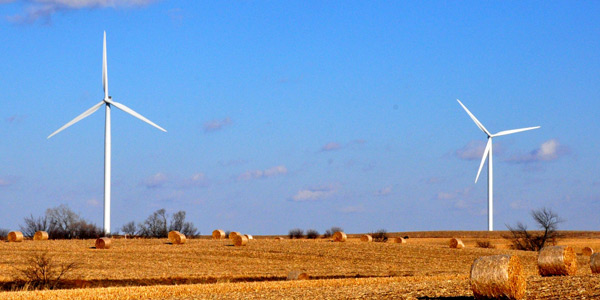By Tom Kleckner
FERC has accepted SPP’s Tariff revisions to clarify and consolidate the RTO’s out-of-merit energy (OOME) processes, scotching objections by several wind energy companies.
The order is effective as of Aug. 10, 2016 (ER16-1912). In a Nov. 9 compliance filing, SPP revised the new OOME definition to clarify the term’s scope, saying it would allow the RTO to issue an out-of-merit instruction to address either an emergency condition or a reliability issue that had not yet risen to an emergency condition.
In June, the RTO filed proposed revisions to clarify OOME dispatch instructions to dispatchable variable energy resources (DVERs) and non-dispatchable variable energy resources (NDVERs). It also said it was improving the Tariff terminology related to operational dispatch instructions by consolidating terms with “no necessary functional distinction,” saying the revisions would mitigate overlap and potentially confusing or conflicting requirements with the NERC communication reliability standards’ (COM) use of “operating instruction.”
The commission accepted SPP’s proposed revisions, noting the Tariff “uses a variety of terms to describe out-of-merit and manual dispatch instructions and, at times, erroneously refers to out-of-merit and manual dispatch instructions in the commitment context.” It said the proposed Tariff revisions “should reduce possible ambiguity within the Tariff and potential conflicts with NERC terminology.”
SPP’s filing was opposed by EDF Renewable Energy, E.ON Climate & Renewables North America and Invenergy, known collectively as the Wind Generation Group.
The Wind Generation Group said the revisions were not needed to avoid confusion or comply with NERC COM-002-4. It also said the proposal would change the OOME term’s scope. The group argued that SPP’s proposal will result in “confusion, financial harm and opportunities for increased litigation,” as well as “a loss of information that will negatively affect wind developers.”
The group also said that in SPP’s Integrated Marketplace, variable wind energy resources are bifurcated into DVERs and NDVERs, noting that the RTO issues automated dispatch instructions through its security-constrained economic dispatch (SCED) for DVERs and issues OOME instructions as needed. The group said “NDVERs are incapable of responding to automated dispatch directives and are thus only subject to manual dispatch instructions.” Manual instructions are issued “only when there is a reliability need that remains after automated SCED dispatch occurs,” it added.
FERC disagreed, saying its review of SPP’s current Tariff “confirms that SPP has used the term out-of-merit energy in the emergency and reliability contexts; thus, the Tariff already allows for out-of-merit energy instructions arising from manual or automated means.” It said the proposed Tariff revisions are not intended to change SPP’s existing practice for OOME instructions, and noted SPP said the processes “will continue to include both manual and automated SCED components.”
The commission dismissed the wind group’s concerns that its members will lose the ability to distinguish between the reasons for manual curtailments (economic, reliability or emergency in nature). It said SPP has confirmed it issues OOME instructions “to respond to reliability issues only.”
FERC said if SPP develops communication protocols outside of the Tariff that wind developers find problematic, the wind generators can raise those issues in the RTO’s stakeholder process. The commission found the wind group’s concerns regarding the differences between NDVERs and DVERs to be outside the proceeding’s scope.





